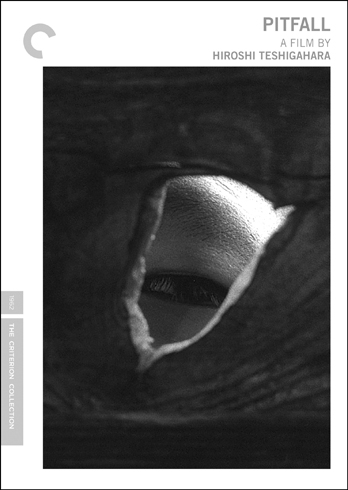(Hiroshi Teshigahara, 1962)
Pitfall is an investigation into the unseen forces in life. This means ghosts, for sure, but the film is not a ghost story. It's not about higher powers, either, but about the powerful and the powerless. It's a dark picture about a man in a white suit that doesn't bother to offer answers. Instead, it paints a picture of a world where we are all pawns in a larger game.
The only film of Teshigahara's I had seen before Pitfall was Antonio Gaudí, the mostly silent documentary about the famous Spanish architect. That made me ill-prepared for his fiction work, and the first few moments of Pitfall are akin to being forced to walk with a different rhythm. This comparison could be applied to many filmmakers in the collection - most notably Ozu, Bresson, and Renais - but it feels especially apt here because Teshigahara's work is so simultaneously allegorical and ultra-realist. Pitfall is a film about a miner attempting to make a better life for himself and his son. Through this premise the film explores the economic difficulties of the work, how mines are tied to the larger society, and the place of unions and their management in that society. But it's not really about any of this, because the film could be set anywhere and effectively convey the same themes of alienation, despair, and powerlessness.
That all sounds very depressing, but the way Teshigahara constructs the film is invigorating. His camera alternates between dirty close-ups and sweeping vistas, and his tone is surprisingly warm. This might be the only ghost story I've seen that lacks any sense of haunting mysticism. Because of this, the fact that the movie ends without a typically satisfying conclusion was not dissatisfying, but purely logical. Pitfall is certainly a challenging film, but it's most impressive because Teshigahara is able to balance the opaqueness with a sense of unity. The man in the white suit might be coming for you, but at least he's coming for all of us.

No comments:
Post a Comment